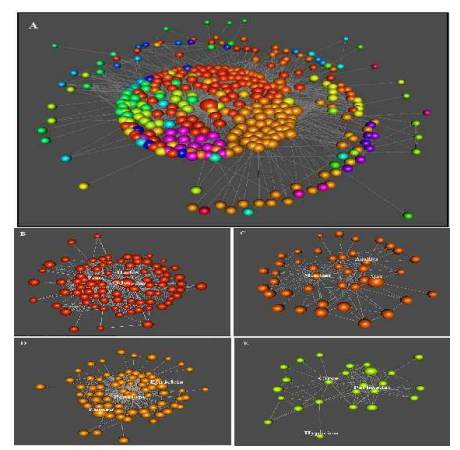- The Remarkable Properties of Mythological Social Networks
The social network between characters in Homer’s Odyssey is remarkably similar to real social networks today. That suggests the story is based, at least in part, on real events, say researchers

- Mobile Summit 2013: See What You Missed
MIT Technology Review’s first mobile-focused conference featured some big names and big news.
Last night we wrapped up our first Mobile Summit, a two-day event dedicated to an incredibly important and exciting area of technological innovation.
- Brain Scans Predict Treatment Outcome in Depression Patients
A biomarker could cut the trial-and-error of finding a patient’s best therapy.
A brain scan could one day help doctors prescribe the best treatment to patients with major depressive disorder. In JAMA Psychiatry on Wednesday, researchers describe how a PET scan can reveal whether a patient will respond better to drugs or cognitive behavior therapy. This could have a “significant health and economic impact” the researchers note: most patients of “this highly prevalent, disabling and costly illness” do not get the treatment best-suited to them at first.
- Camera Tweaks Should Boost Smartphone Battery Life
Research could make persistent computer-vision more feasible, and improve your smartphone’s battery life.
The digital cameras in smartphones, tablets, and devices like Google Glass are increasingly powerful and useful. But the more powerful they are, the more they drain battery life.
- Cheaper Ways to Capture Carbon Dioxide
Techniques developed at MIT and Pacific Northwest National Lab could make it more affordable to burn fossil fuels without releasing carbon dioxide to the atmosphere.
Capturing carbon dioxide from smokestacks and then storing it underground could make it possible to continue using fossil fuels without making such a large contribution to global warming. But the current method of capturing the carbon dioxide requires a lot of energy—it can lower the output of a power plant by a third and nearly double the cost of electricity.
- Virus That Evolved in the Lab Delivers Gene Therapy into the Retina
From millions of random mutations, scientists identify a virus that could make gene therapy for inherited retinal diseases safer and more effective.
A new delivery mechanism shuttles gene therapy deep into the eye’s retina to repair damaged light-sensing cells without requiring a surgeon to put a needle through this delicate tissue. The approach could make it substantially easier to treat inherited forms of eye disease with this approach.
- Mobile Summit 2013: More Apps May Soon Want to Know Where You Are
Factual, a company that provides location data on places, thinks more apps could make use of its information.
Many smartphone apps have terms and conditions that allow them to collect location data from users—whether or not those apps actually use that information to improve their service. That data could soon be used in some surprising ways, by music or photo apps, for example.
Digest powered by RSS Digest

